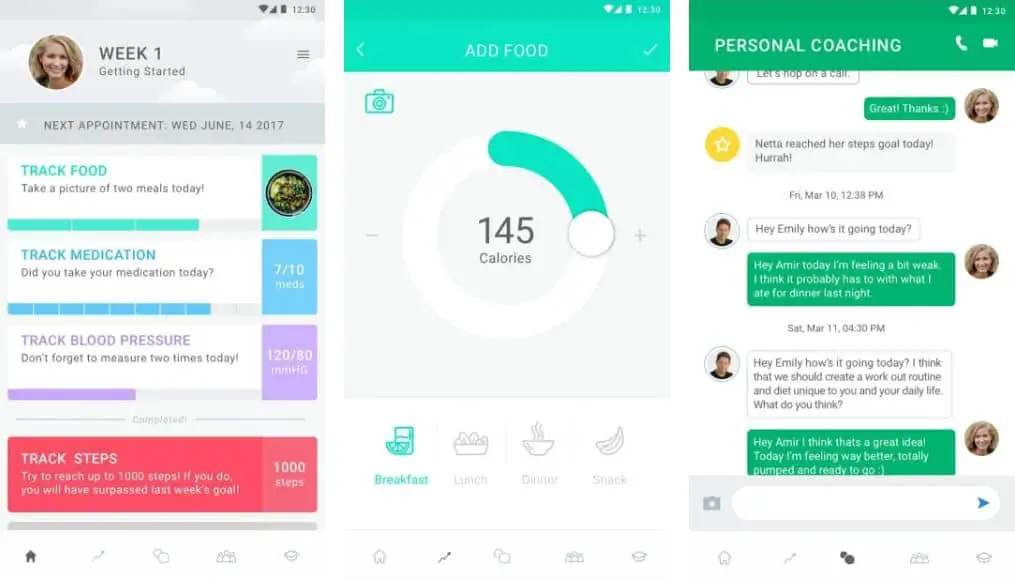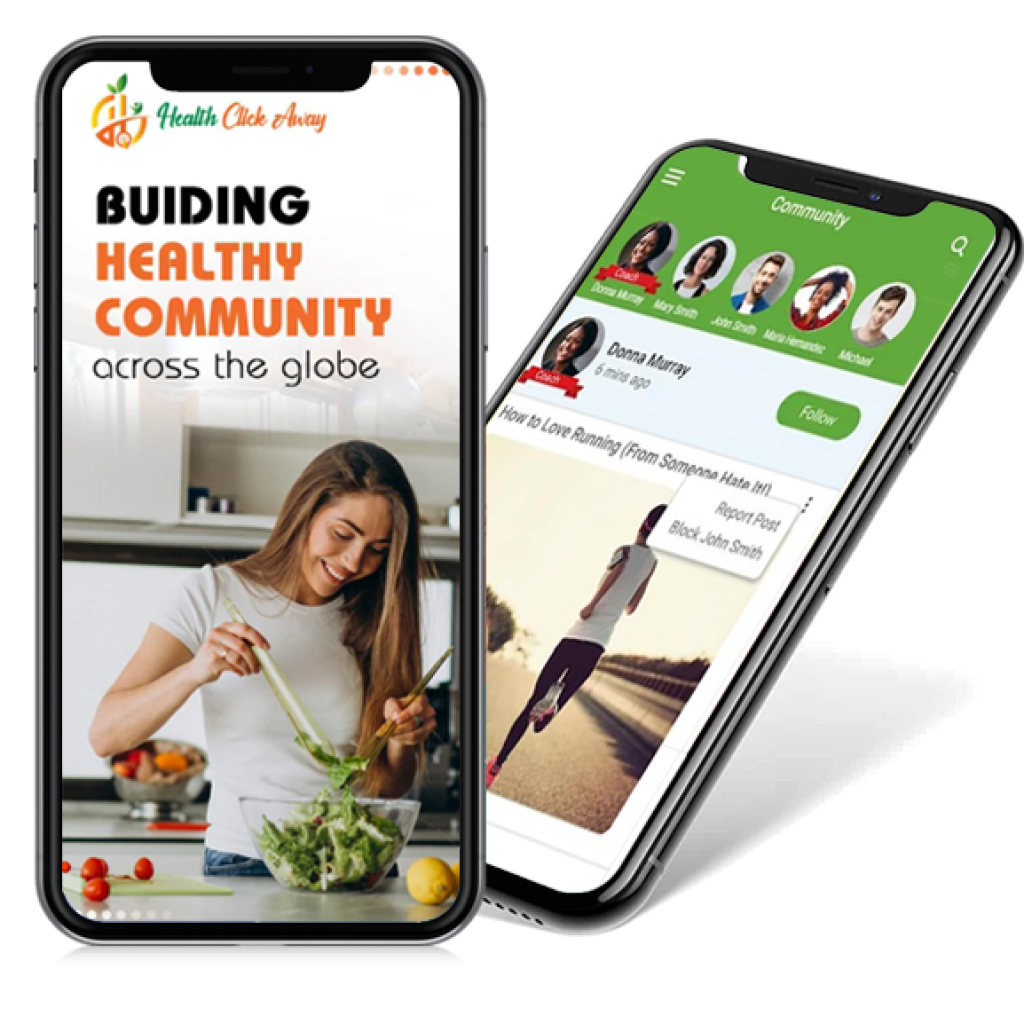Health coaching apps are revolutionizing healthcare by providing personalized guidance and support to individuals seeking to improve their well-being. These apps offer a comprehensive suite of features and functionality that empower users to set health goals, track progress, and connect with certified health coaches for expert advice and encouragement.
As the demand for personalized healthcare solutions grows, health coaching apps are poised to play an increasingly significant role in shaping the future of healthcare delivery.
Market Overview

The health coaching app market is experiencing substantial growth, driven by the increasing prevalence of chronic diseases and the growing demand for personalized healthcare solutions. The market is expected to reach a value of $12.6 billion by 2027, expanding at a CAGR of 15.1% during the forecast period.
Key trends shaping the market include the adoption of artificial intelligence (AI) and machine learning (ML) to provide personalized coaching experiences, the integration of wearable devices and sensors to track health metrics, and the increasing focus on mental health and well-being.
Key Players
- Noom: A leading weight loss and healthy lifestyle app that offers personalized meal plans, exercise tracking, and community support.
- BetterMe: A comprehensive health and fitness app that provides personalized workouts, nutrition plans, and mindfulness exercises.
- Omada Health: A digital health company that offers chronic disease management programs, including diabetes prevention and weight loss.
App Features and Functionality
Health coaching apps offer a wide range of features and functionality designed to support users in achieving their health goals. These features can include:
- Goal setting and tracking:Apps allow users to set specific health goals, such as losing weight, improving diet, or increasing physical activity. They can then track their progress towards these goals over time.
- Personalized recommendations:Many apps provide personalized recommendations based on the user’s individual needs and preferences. These recommendations can include tailored exercise plans, nutrition advice, or mindfulness exercises.
- Community support:Apps often offer community features, such as forums or chat rooms, where users can connect with others who are also trying to improve their health. This can provide motivation and support.
- Integration with other health apps and devices:Many apps integrate with other health apps and devices, such as fitness trackers or calorie counters. This allows users to track their health data in one place.
Personalized Recommendations
Personalized recommendations are a key feature of many health coaching apps. These recommendations are based on the user’s individual needs and preferences, and can include tailored exercise plans, nutrition advice, or mindfulness exercises. Personalized recommendations can be very helpful for users who are trying to improve their health, as they can provide them with the specific guidance and support they need to reach their goals.
User Experience and Engagement

Health coaching apps aim to deliver a user-centric experience that encourages sustained engagement and promotes healthy behavior change. Understanding the typical user experience and implementing strategies to enhance engagement are crucial for the success of these apps.
Typically, users engage with health coaching apps by setting health goals, tracking their progress, receiving personalized guidance, and connecting with a community of support. A well-designed user interface, intuitive navigation, and seamless integration with other health-related apps contribute to a positive user experience.
Strategies for Improving User Engagement and Retention, Health coaching apps
To improve user engagement and retention, health coaching apps employ various strategies, including:
- Personalized Content:Tailoring content to individual user needs, preferences, and goals increases relevance and engagement.
- Gamification:Incorporating game-like elements, such as challenges, rewards, and leaderboards, can motivate users and make the experience more enjoyable.
- Social Support:Fostering a sense of community through forums, discussion groups, and peer-to-peer support networks enhances motivation and accountability.
- Notifications and Reminders:Timely reminders, progress updates, and personalized messages help users stay on track and engaged with the app.
- Data Analytics and Feedback:Tracking user behavior, progress, and feedback allows developers to identify areas for improvement and optimize the app experience.
Data Collection and Analysis

Health coaching apps collect user data to understand their health goals, lifestyle, and behaviors. This data is collected through surveys, self-tracking, and wearable devices. By analyzing this data, apps can tailor coaching interventions to individual needs.
Benefits of Data-Driven Coaching
Personalized interventions
Data analysis allows apps to identify areas where users need support and tailor coaching programs accordingly.
Progress tracking
Tracking user data helps apps monitor progress and make adjustments to interventions as needed.
Behavior change insights
Data analysis provides insights into user behavior patterns, enabling apps to identify triggers and develop strategies for behavior change.
Challenges of Data Collection and Analysis
Data privacy concerns
Apps must ensure that user data is collected and stored securely and that users have control over how their data is used.
Data accuracy
Self-reported data may be inaccurate, and wearable devices may not always provide reliable measurements.
Ethical considerations
Apps must use data ethically and avoid exploiting user information for commercial purposes.
Integration with Other Health Tools: Health Coaching Apps

Integrating health coaching apps with other health tools offers a multitude of benefits, enhancing the user experience and driving improved health outcomes.
By seamlessly connecting with devices and platforms such as fitness trackers, wearable health monitors, and medical record systems, health coaching apps can provide a comprehensive view of an individual’s health status. This enables personalized coaching tailored to specific needs and goals, supported by real-time data and insights.
Successful Integrations
- Apple Health Integration:Health coaching apps that integrate with Apple Health can access a wide range of health data, including steps taken, calories burned, sleep patterns, and heart rate. This data can be used to create personalized coaching plans and provide feedback on progress.
- Fitbit Integration:Fitbit integration allows health coaching apps to track activity levels, sleep quality, and heart rate. This data can be used to set realistic goals, monitor progress, and identify areas for improvement.
- Electronic Health Records Integration:Integrating with electronic health records (EHRs) enables health coaching apps to access medical history, lab results, and medication information. This comprehensive view of an individual’s health can inform coaching strategies and improve medication adherence.
Challenges associated with integration include data privacy and security concerns, interoperability issues between different devices and platforms, and ensuring that the integrated data is used ethically and responsibly.
Future Trends and Innovations
The health coaching app market is constantly evolving, with new trends and innovations emerging all the time. These advancements have the potential to revolutionize the way we approach health and wellness, making it easier and more personalized than ever before.
One of the most exciting trends is the use of artificial intelligence (AI) in health coaching apps. AI can be used to provide personalized recommendations, track progress, and offer support. This can help users to stay motivated and on track with their health goals.
AI-powered Health Coaching
AI-powered health coaching apps can provide users with personalized recommendations, track their progress, and offer support. This can help users to stay motivated and on track with their health goals.
- AI-powered health coaching apps can use machine learning to analyze user data and provide personalized recommendations.
- These apps can also track user progress and provide feedback, helping users to stay motivated.
- AI-powered health coaching apps can offer support 24/7, making them a valuable resource for users who need help with their health goals.
Integration with Wearable Devices
Health coaching apps are also becoming increasingly integrated with wearable devices. This allows users to track their activity levels, sleep patterns, and other health metrics. This data can then be used by the app to provide personalized recommendations and support.
- Integration with wearable devices allows users to track their activity levels, sleep patterns, and other health metrics.
- This data can then be used by the app to provide personalized recommendations and support.
- Integration with wearable devices can also make it easier for users to stay motivated and on track with their health goals.
Virtual Reality and Augmented Reality
Virtual reality (VR) and augmented reality (AR) are also being used to create more immersive and engaging health coaching experiences. VR can be used to create virtual environments that allow users to experience different health scenarios. AR can be used to overlay health information onto the real world, making it easier for users to track their progress and stay motivated.
- VR and AR can be used to create more immersive and engaging health coaching experiences.
- VR can be used to create virtual environments that allow users to experience different health scenarios.
- AR can be used to overlay health information onto the real world, making it easier for users to track their progress and stay motivated.
These are just a few of the trends and innovations that are shaping the future of health coaching apps. As these technologies continue to develop, we can expect to see even more innovative and effective ways to help people achieve their health goals.
Ending Remarks

The future of health coaching apps holds immense promise, with emerging trends and innovations pointing towards even more personalized and data-driven interventions. As these apps continue to evolve, they will undoubtedly become indispensable tools for individuals seeking to take control of their health and achieve their wellness goals.
Answers to Common Questions
What are the benefits of using health coaching apps?
Health coaching apps offer numerous benefits, including personalized guidance, tailored recommendations, progress tracking, and access to expert health coaches.
How do health coaching apps collect and use user data?
Health coaching apps collect user data through various methods, such as self-reported information, activity tracking, and integration with other health devices. This data is used to personalize coaching interventions and provide tailored recommendations.
Are health coaching apps safe and secure?
Reputable health coaching apps prioritize user privacy and security. They typically employ encryption and other security measures to protect user data.